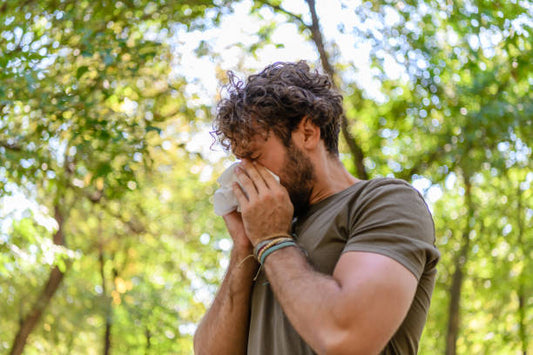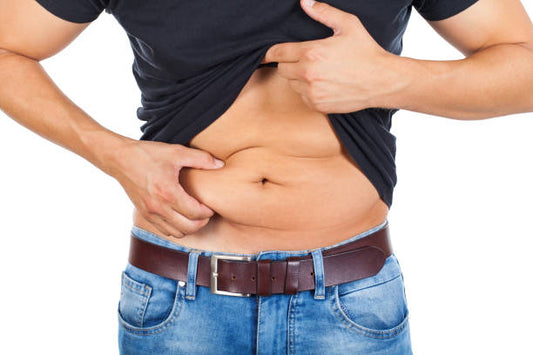Depression is a prevalent mental condition characterized by persistent feelings of sadness, hopelessness, and loss of interest in formerly pleasurable activities. Other typical signs of depression include alterations in eating and sleep patterns, exhaustion, concentration difficulties, and suicidal or self-harming thoughts. Depression can affect individuals of all ages and is the main cause of disability on a global scale.
Although there are effective treatments for depression, such as medicine and psychotherapy, many individuals choose to seek out natural alternatives to alleviate their symptoms. Bacopa is one of these natural remedies that has gained popularity due to its potential to promote mental wellness and treat symptoms of depression. Bacopa may be a promising natural treatment for certain people with depression, although additional research is needed to completely understand its effects on depression.
History
Bacopa, also known as Brahmi, is a perennial herb native to India that has been used in Ayurvedic medicine for thousands of years. It was traditionally employed as a brain tonic to improve cognitive function and memory, as well as to treat neurological disorders. Bacopa has gained popularity in recent years due to its ability to alleviate symptoms of depression, anxiety, and stress. Neurotransmitters associated with mood regulation, such as serotonin and dopamine, may be positively affected by Bacopa extract, according to clinical studies. Bacopa has also been found to have adaptogenic properties, which means it helps the body maintain balance and resistance to stress..
How it works
The precise processes through which Bacopa may alleviate depressive symptoms are not well understood. However, researchers have proposed a number of possible ways by which Bacopa may function, including:
Bacopa has been proven to raise the levels of neurotransmitters such as serotonin and dopamine, which play a critical role in regulating mood and alleviating depressive symptoms.
Bacopa contains significant antioxidant qualities, which may aid to reduce oxidative stress in the brain, and has been found to lessen oxidative stress. Depression has been linked to oxidative stress, therefore lowering this sort of stress may reduce depressive symptoms.
Bacopa has been demonstrated to modulate the HPA (hypothalamic-pituitary-adrenal) axis, which is a complex system that regulates the body's stress response. Depression has been linked to dysregulation of the HPA axis, and controlling this system may lessen depressive symptoms.
Bacopa has been demonstrated to promote neuroplasticity, which is the capacity of the brain to make new connections and remodel old ones. Enhancing neuroplasticity may reduce symptoms of depression by enhancing mood and reducing anxiety.
Importantly, further research is required to completely comprehend the processes through which Bacopa may alleviate depressive symptoms, as the evidence to far is limited. If you are contemplating the use of Bacopa or any other natural antidepressant, it is essential to examine the following.
Studies and Results
Several research have studied the ability of Bacopa to alleviate depressive symptoms, however the results have been inconsistent. Some studies have discovered encouraging results, while others have found none.
In a 12-week study of 64 individuals with depression, subjects administered either Bacopa or a placebo. In comparison to those who received a placebo, those who took Bacopa had significant improvements in depressive symptoms. Nonetheless, this trial was small and poorly controlled, so additional research is required to validate these results.
Bacopa was not substantially more beneficial than a placebo in lowering depressive symptoms in a second research involving 42 individuals with depression. This study has limitations, including a small sample size and the absence of a control group; therefore, additional research is required to draw definitive conclusions about the efficacy of Bacopa for depression.
The appropriate dosage of Bacopa for alleviating depressive symptoms has not been determined. In trials, dosages ranged from 300 to 450 mg per day; however, additional study is required to find the optimum beneficial dosage. Before taking Bacopa or any other natural cure for depression, it is crucial to see a healthcare expert, since different formulations and doses may have varied results, and some individuals may be more susceptible to Bacopa and have adverse effects at lower doses. In addition, Bacopa may interfere with some medications; therefore, it is essential to inform your doctor of all medications you are currently taking prior to using Bacopa.
Recommended Dosage
The recommended dosage of Bacopa varies depending on the product and the method of administration. In general, once or twice daily administration of 300-450 mg of Bacopa extract standardized to contain 55% bacosides is considered safe and effective. Before beginning any new supplement, it is essential to consult a healthcare professional, especially if you are currently taking medications or have a preexisting medical condition.
Conclusion
Bacopa has been used as a brain tonic in Ayurvedic medicine for centuries and has recently gained attention for its potential to alleviate depressive symptoms. The available clinical evidence suggests that Bacopa may be effective for enhancing cognitive function, enhancing mood, and reducing stress and anxiety. To fully understand the effects of Bacopa and to establish safe and effective dosages, additional research is required.
References
- Rastogi DP, Gupta SK, Singh RB, et al. "A comparative study of Bacopa monniera and Ginkgo biloba: Antioxidant activity and amelioration of cognitive deficit." Indian Journal of Experimental Biology. 2010;48(7):679-683.
- Aguiar S, Borowski T. "Bacopa monnieri: An evidence-based systematic review by the Natural Standard Research Collaboration." Journal of Dietary Supplements. 2013;10(2):135-147.
- Stough C, Downey LA, Lloyd J, et al. "Examining the nootropic effects of a special extract of Bacopa monnieri on human cognitive functioning: 90 day double-blind placebo-controlled randomized trial." Phytotherapy Research. 2008;22(12):1629-1634.




